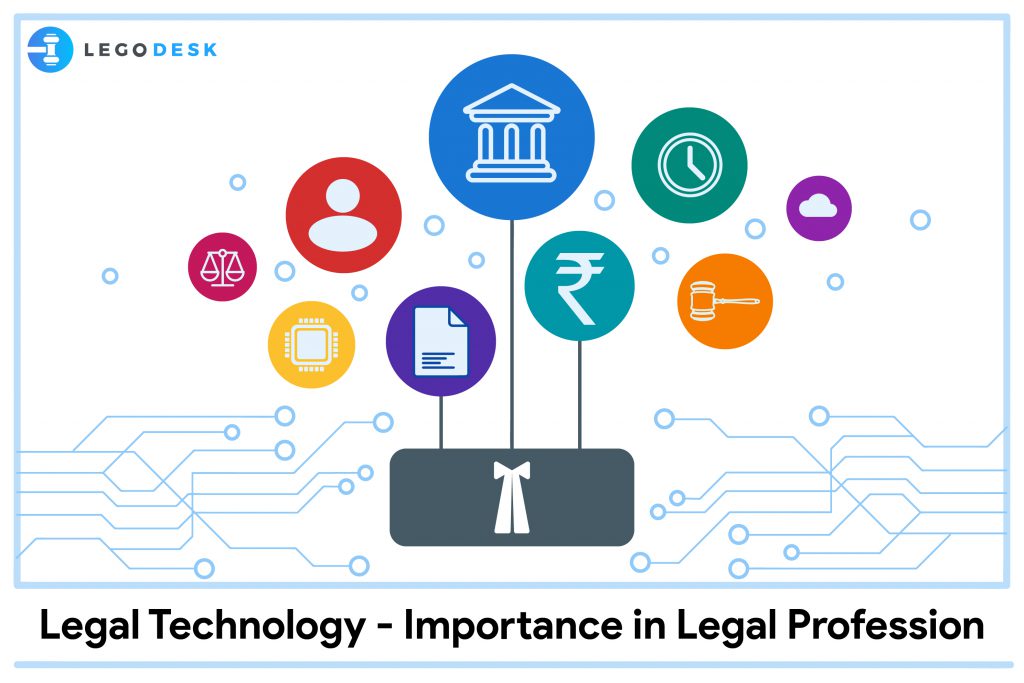What is the Importance Of Legal Technology in Legal Profession?

Introduction
For legal professionals to understand the importance of technology in their legal careers, it is first imperative to understand what it means. Law is structured around specific forms of knowledge, flows of information, and networks of communication. Technology can be defined as “the application of scientific knowledge for practical purposes, especially in industry.” Legal technology has developed rapidly in recent times because of increased investment and access to new technology. By new technology, I mean that legal knowledge has combined itself with machine learning, and when combined with legal books, it has a vast application across all legal sectors – be it corporate or government.
Automate your practice with our legal practice management software – Sign Up Now!
What is the Purpose of Legal Technology?
The primary purpose of this type of technological development has been to increase the efficiency of legal offices and the productivity of clerical workers. The technology used to monitor the internal capacities of the organizations has enabled management to compare the performance of different departments and cost centers within an organization. This data is used to plan future organizational strategies. In this context, the introduction and use of information technology have significant implications for the organizational forms through which legal services and legal decision-making are mediated. Its importance can be traced in five different ways.
Read Also – How Case Management Systems can help Lawyers
Importance of Legal Technology
- Increased Global Outlook: As the law firms have grown in size and expanded the geographical reach of their services, computer-based systems have provided the mechanisms for coordinating and controlling their operations. Such types of firms have invested heavily in the development of their information and communication infrastructures and have adopted styles of practice that depend on the use of new technology. This helps lawyers deliver fast services to their clients. Thus, legal technology enhances the global outlook of legal practice and also plays an important role when it comes to firms positioning themselves in an international legal market.
- Greater Transparency: In the new world, client demands are changing and at an accelerating rate. New technology is the key to enable firms to meet these changing demands and have a client-centric approach. Legal technology allows clients to know how much fees they have to pay and the day-to-day progress of the lawyer on their case. They also show clients information in a precise and concise manner. Furthermore, clients can judge the performance of their lawyers against various indicators provided by the practice management software. This ensures that they do not spend more on the case than they earn from it.
- Efficient Use of Resources: There are a lot of financial constraints imposed on legal firms, agencies, etc. which have restricted their full use of resources. The development of legal technology spanning the entire legal sector delivers benefits on a much larger scale. In this context, legal firms’ use of technology could be used as a means to join new ventures, maintain alliances, procure clients, share information, and efficiently use the resources at their disposal. Furthermore, it reduces the problems of scarcity associated with print.
- Time Management and Fast Processing of Information: There is no doubt that technology if used correctly, is fast and efficient – more than any human individual. This can prove to be of great assistance to any law firm. A high level of analysis can be done in a matter of minutes. The use of algorithms also enables calculations speedily and can easily rectify and errors in a few seconds. It reports functions that simplify the management and control of caseloads. This would previously take a large amount of time and was also quite a tedious clerical task that interested no one. Legal technology helps in managing a high turnover of cases.
- Reduction in Chances of Errors: As now all documentation is online, and handled by an Artificial Intelligence (AI), the chances of errors are much lesser. Previously, human errors could have easily been overlooked because of the impossibility of detecting every error that crept up. But with the use of an artificial tracking system, documents can be tracked and analyzed in an infinite number of ways and promises close to no errors in the final document. This also helps in timely submission and works in favor of clients, thereby the law firms.
Read Also – What are the 5 main sources of law in India
Conclusion
Considering the fact that legal projects are increasing in their size, and some even involve a variety of actors and a plethora of paperwork, it has become very important to deliver such services to clients that are as low-cost, effective, and professional as possible. It is for this reason that the continuous development of legal technology in the present times becomes very significant.
The adoption of legal technology in law firms and legal agencies can go on a long way in improving their efficiency and also brings with it the promise of new clients. It creates flexible legal services, increases transparency, reduces the chance of errors in documentation, and also puts your firm on the global map! Legal technology is the way to go!
Read Also – Embracing Law and Technology: Are Indian Law Students Legal Tech Literate?
Try our Debt Resolution solutions today Request a Demo